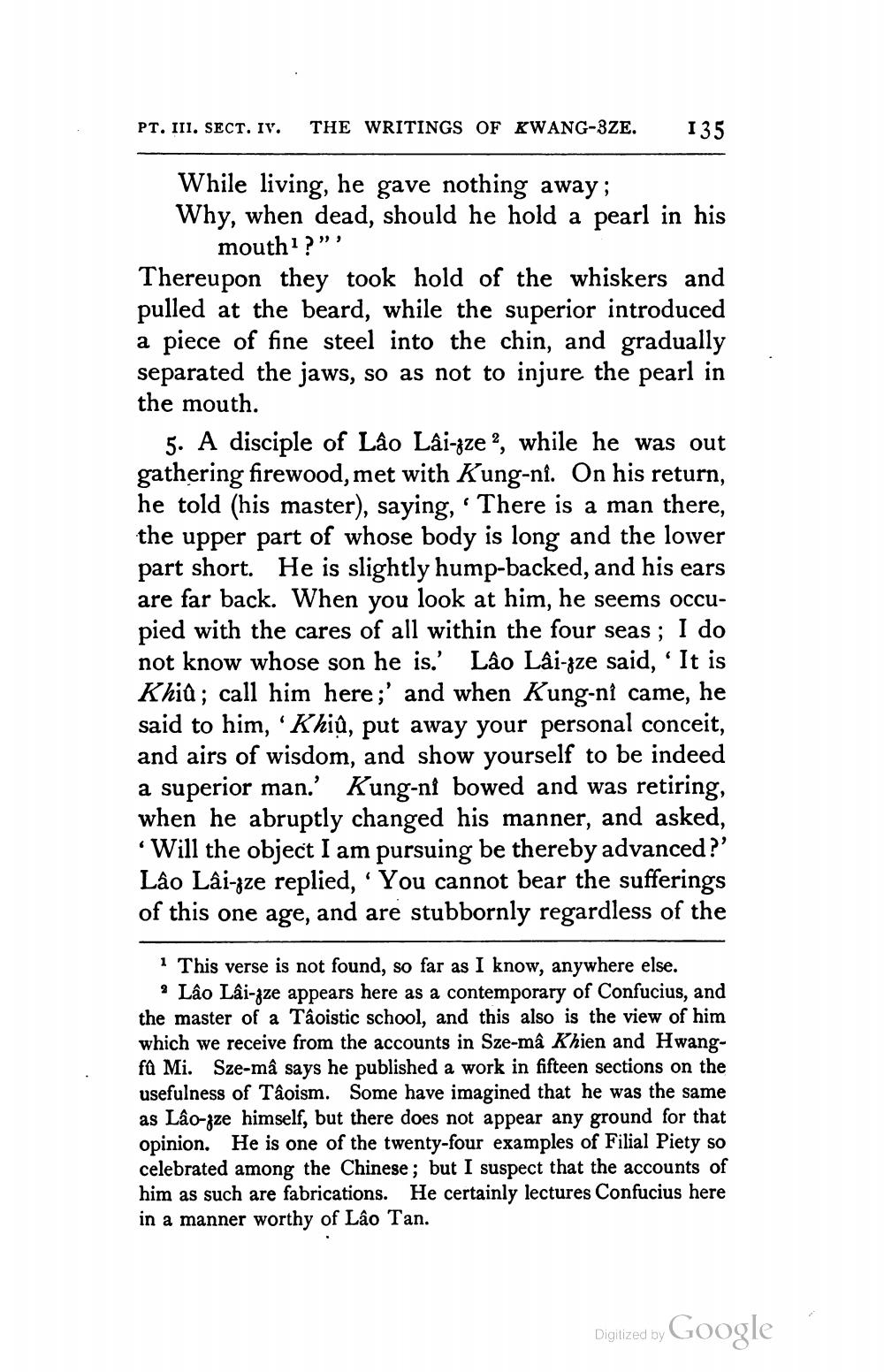________________
PT. III. SECT. IV. THE WRITINGS OF KWANG-BZE.
135
While living, he gave nothing away; Why, when dead, should he hold a pearl in his
mouth?” Thereupon they took hold of the whiskers and pulled at the beard, while the superior introduced a piece of fine steel into the chin, and gradually separated the jaws, so as not to injure the pearl in the mouth.
5. A disciple of Lão Lâi-zze ?, while he was out gathering firewood, met with K’ung-ni. On his return, he told (his master), saying, There is a man there, the upper part of whose body is long and the lower part short. He is slightly hump-backed, and his ears are far back. When you look at him, he seems occupied with the cares of all within the four seas; I do not know whose son he is. Lâo Lâi-zze said, 'It is Khill; call him here;' and when Kung-ni came, he said to him, 'Khiù, put away your personal conceit, and airs of wisdom, and show yourself to be indeed a superior man.' Kung-ni bowed and was retiring, when he abruptly changed his manner, and asked, • Will the object I am pursuing be thereby advanced?' Lão Lâi-zze replied, 'You cannot bear the sufferings of this one age, and are stubbornly regardless of the
1 This verse is not found, so far as I know, anywhere else.
? Lao Lâi-zze appears here as a contemporary of Confucius, and the master of a Taoistic school, and this also is the view of him which we receive from the accounts in Sze-mâ Khien and Hwangfù Mi. Sze-mâ says he published a work in fifteen sections on the usefulness of Taoism. Some have imagined that he was the same as Lâo-gze himself, but there does not appear any ground for that opinion. He is one of the twenty-four examples of Filial Piety so celebrated among the Chinese; but I suspect that the accounts of him as such are fabrications. He certainly lectures Confucius here in a manner worthy of Lão Tan.
Digitized by Google




